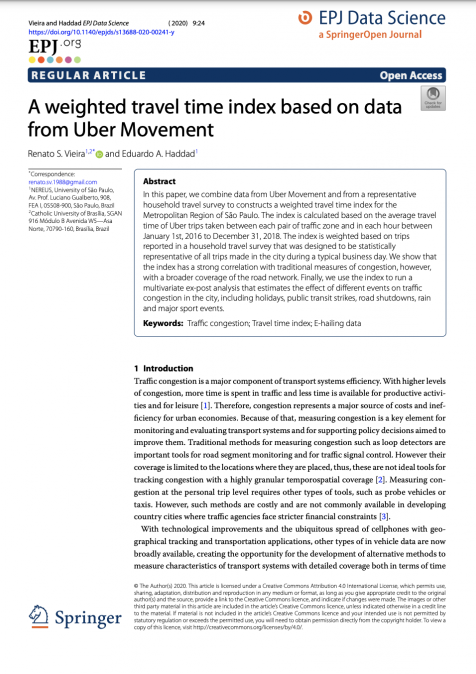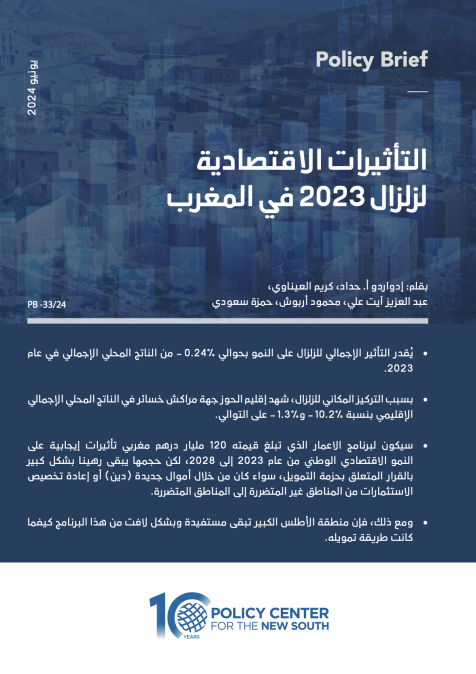Publications /
Paper in Academic Journals
In this paper, we combine data from Uber Movement and from a representative household travel survey to constructs a weighted travel time index for the Metropolitan Region of São Paulo. The index is calculated based on the average travel time of Uber trips taken between each pair of traffic zone and in each hour between January 1st, 2016 to December 31, 2018. The index is weighted based on trips reported in a household travel survey that was designed to be statistically representative of all trips made in the city during a typical business day. We show that the index has a strong correlation with traditional measures of congestion, however, with a broader coverage of the road network. Finally, we use the index to run a multivariate ex-post analysis that estimates the effect of different events on traffic congestion in the city, including holidays, public transit strikes, road shutdowns, rain and major sport events.








